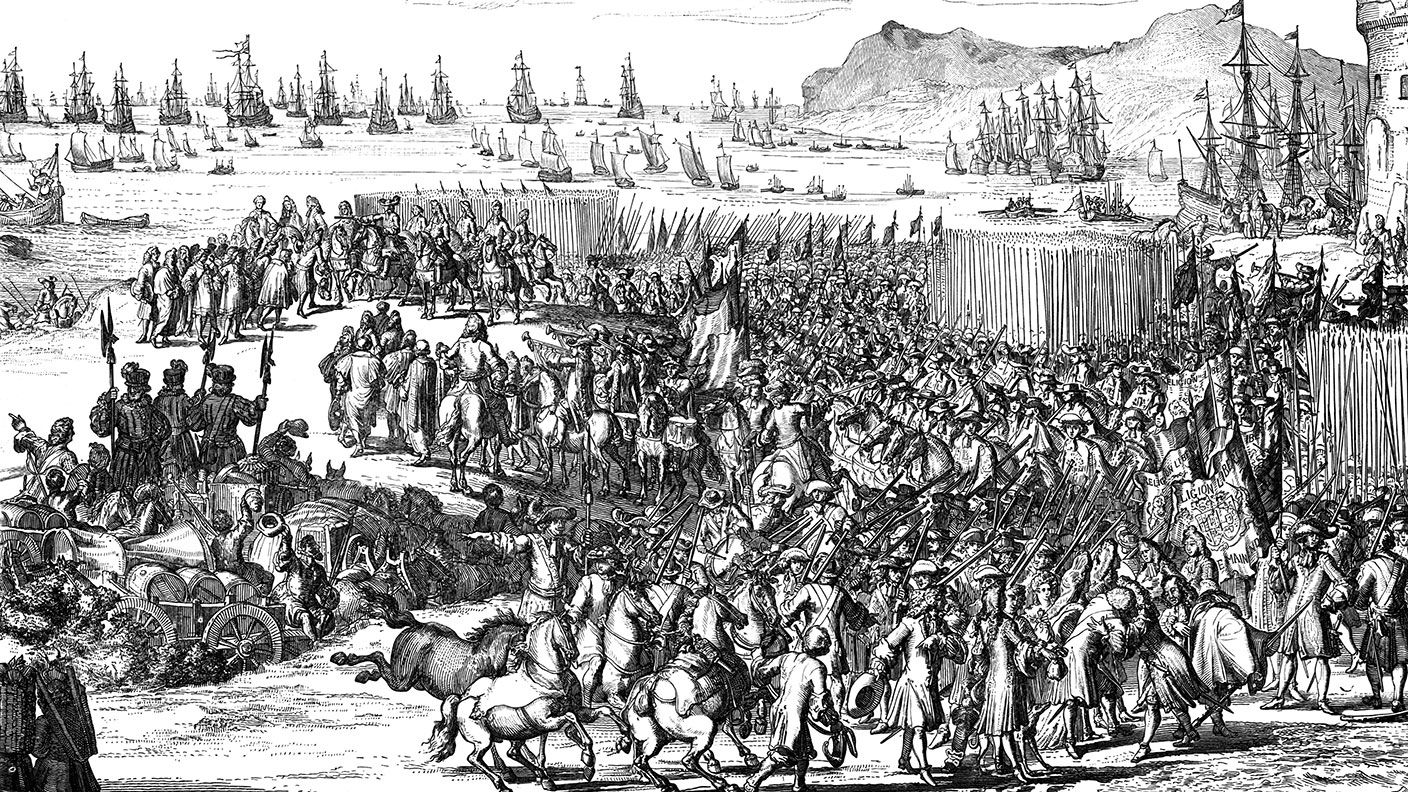
Get the latest financial news, insights and expert analysis from our award-winning MoneyWeek team, to help you understand what really matters when it comes to your finances.
You are now subscribed
Your newsletter sign-up was successful
Want to add more newsletters?

Twice daily
MoneyWeek
Get the latest financial news, insights and expert analysis from our award-winning MoneyWeek team, to help you understand what really matters when it comes to your finances.

Four times a week
Look After My Bills
Sign up to our free money-saving newsletter, filled with the latest news and expert advice to help you find the best tips and deals for managing your bills. Start saving today!
Seventeenth-century England was not what one could call a place of peace, harmony and tolerance. In fact, it was full of fundamentalist religious nutcases.
The biggest evil in the land was Popery. Englanders were convinced that Europe's Roman Catholics were plotting to take over the country by fair means or foul, and create a state subjugated to the tyranny of a foreign monarch. And not just any foreign monarch. The worst kind of foreign monarch: a French monarch.
After Charles II died in 1685, the throne passed to his suspiciously Catholic brother, James II. This upset a lot of people. His 'Declaration of Indulgence', which suspended legal penalties against religious dissenters, didn't go down well at all. It was seen as a way of making Catholicism acceptable.
MoneyWeek
Subscribe to MoneyWeek today and get your first six magazine issues absolutely FREE

Sign up to Money Morning
Don't miss the latest investment and personal finances news, market analysis, plus money-saving tips with our free twice-daily newsletter
Don't miss the latest investment and personal finances news, market analysis, plus money-saving tips with our free twice-daily newsletter
And so a plot began to overthrow the king and install an acceptable foreign monarch – ie, a good protestant monarch – in his place.
In June 1688, seven people – Henry Sidney (AKA the Earl of Romney), Edward Russell (AKA Earl of Orford), the Bishop of London, Richard Lumley (AKA Viscount Lumley, AKA Earl of Scarbrough), Thomas Osborne (AKA Earl of Danby), Charles Talbot (AKA Earl of Shrewsbury) and William Cavendish (AKA Earl of Devonshire) – formally invited William of Orange, Stadtholder of the Netherlands and husband of the king's daughter, Mary, to rustle up an army and invade.
Which he did.
And so on this day in 1688, he and his 15,000-strong army landed at Brixham, in Devon. They marched to London virtually unopposed, and King James fled.
In the revolution's wake, the Bill of Rights was passed, in which Parliament's power was strengthened and the monarch's reduced. And a certain amount of religious freedom was allowed with the passing of the Toleration Act.
It is often called the Glorious Revolution. It is also often called a “bloodless” revolution. But things are not seen quite that way in many parts of Scotland and Ireland, where quite a lot of blood was shed in its wake.
Get the latest financial news, insights and expert analysis from our award-winning MoneyWeek team, to help you understand what really matters when it comes to your finances.

-
 Should you buy an active ETF?
Should you buy an active ETF?ETFs are often mischaracterised as passive products, but they can be a convenient way to add active management to your portfolio
-
 Power up your pension before 5 April – easy ways to save before the tax year end
Power up your pension before 5 April – easy ways to save before the tax year endWith the end of the tax year looming, pension savers currently have a window to review and maximise what’s going into their retirement funds – we look at how
-
 31 August 1957: the Federation of Malaya declares independence from the UK
31 August 1957: the Federation of Malaya declares independence from the UKFeatures On this day in 1957, after ten years of preparation, the Federation of Malaya became an independent nation.
-
 13 April 1960: the first satellite navigation system is launched
13 April 1960: the first satellite navigation system is launchedFeatures On this day in 1960, Nasa sent the Transit 1B satellite into orbit to provide positioning for the US Navy’s fleet of Polaris ballistic missile submarines.
-
 9 April 1838: National Gallery opens in Trafalgar Square
9 April 1838: National Gallery opens in Trafalgar SquareFeatures On this day in 1838, William Wilkins’ new National Gallery building in Trafalgar Square opened to the public.
-
3 March 1962: British Antarctic Territory is created
Features On this day in 1962, Britain formed the British Antarctic Territory administered from the Falkland Islands.
-
10 March 2000: the dotcom bubble peaks
Features Tech mania fanned by the dawning of the internet age inflated the dotcom bubble to maximum extent, on this day in 2000.
-
9 March 1776: Adam Smith publishes 'The Wealth of Nations'
Features On this day in 1776, Adam Smith, the “father of modern economics”, published his hugely influential book The Wealth of Nations.
-
 8 March 1817: the New York Stock Exchange is formed
8 March 1817: the New York Stock Exchange is formedFeatures On this day in 1817, a group of brokers moved out of a New York coffee house to form what would become the biggest stock exchange in the world.
-
7 March 1969: Queen Elizabeth II officially opens the Victoria Line
Features On this day in 1969, Queen Elizabeth II took only her second trip on the tube to officially open the underground’s newest line – the Victoria Line.
